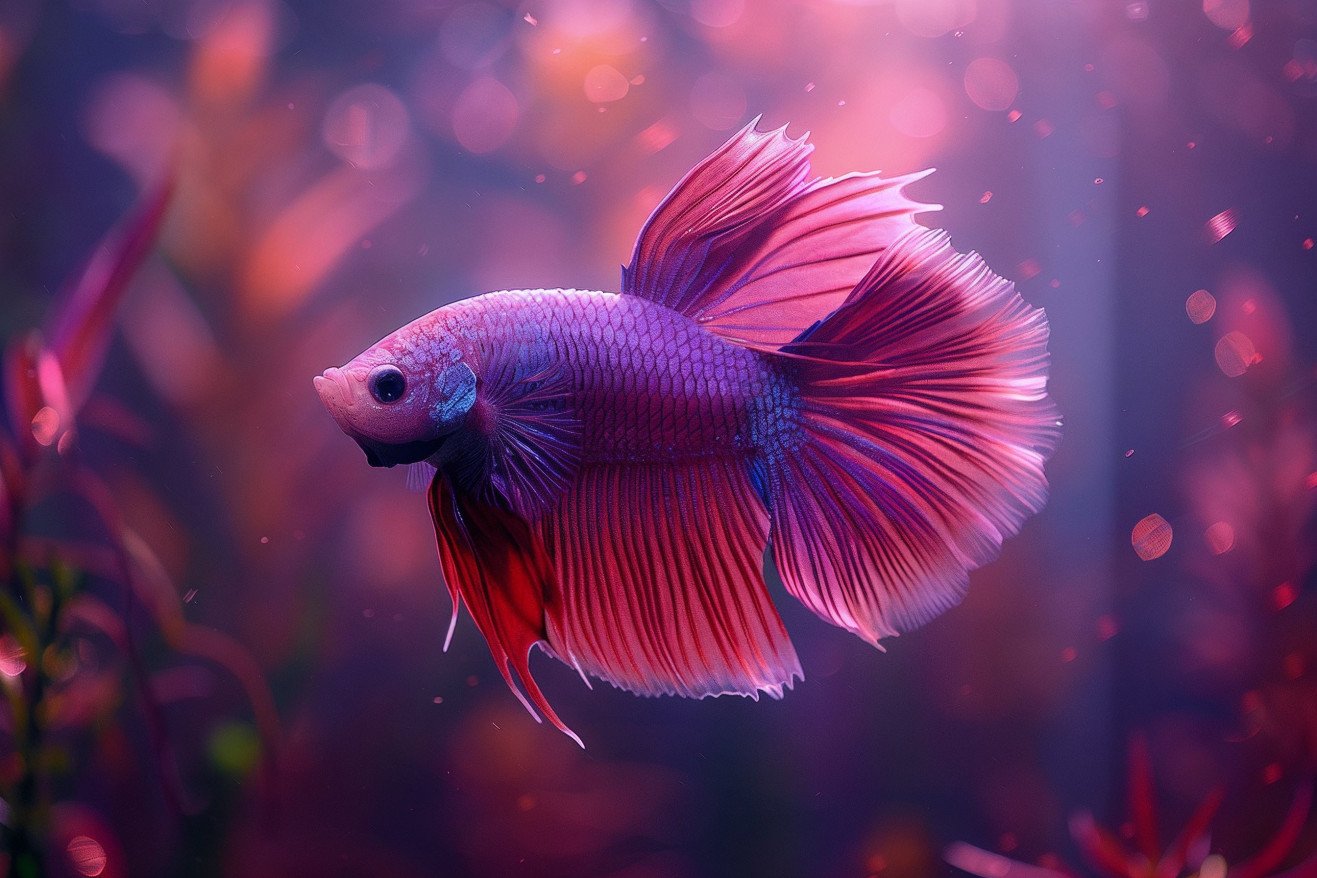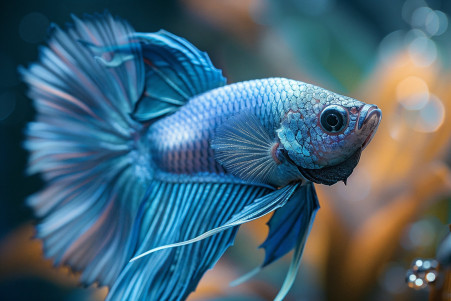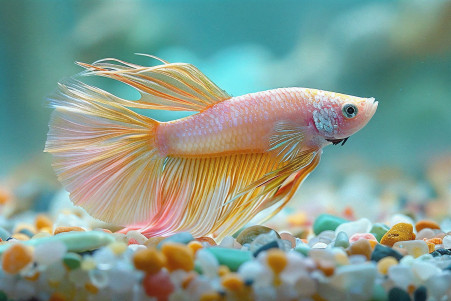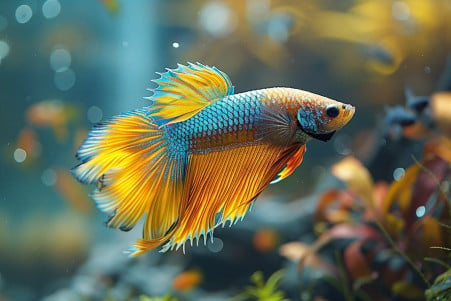Do Betta Fish Need Light? Exploring Their Illumination Needs
16 May 2024 • Updated 15 May 2024

If you're trying to make sure that you're creating the best possible environment for your betta fish, you may have found yourself wondering if they need a specific type of lighting. While bettas can survive without a light in their tank, the right lighting can improve their health, behavior, and overall vibrancy in ways that are essential to their well-being and that mirror their natural habitat.
To get a complete picture of what bettas need when it comes to lighting, we'll look at studies in the fields of ichthyology, behavioral biology, and aquatic ecosystems. This will help us understand the complex connection between bettas and the amount of light they need to live their best lives, including how light can impact stress levels, circadian rhythms, plant life, and environmental stimulation. With this information, you can make sure that you're creating an environment that helps your betta look and feel their best.
Do betta fish need light?
Why Light Cycles Matter for Betta Fish
Light and dark cycles are important for bettas because they help recreate the natural conditions of their environment and help maintain their circadian rhythms. According to Betta Buddy, a good rule of thumb is to aim for 14-16 hours of light and 8-10 hours of darkness, which is similar to the amount of light a betta would experience in the wild. Bettas are diurnal, so they are most active during the day, and if you follow this schedule, you can help them maintain a natural routine that includes swimming and eating. However, as Aqueon points out, bettas need darkness at night so they can sleep, which is another way their needs are similar to humans.
By keeping a consistent schedule, you can help your betta maintain a healthy sleep-wake cycle, feeding schedule, and overall health. In the morning, Betta Buddy explains that light can help bettas wake up and get ready for the day, while at night, darkness can help them relax and recharge. In fact, a study on betta fish lighting and activity found that if a betta's light schedule is inconsistent, it can lead to stress, inactivity, and other problems like fin rot. So, it's important to make sure your betta is getting the light and dark cycles it needs to be healthy and happy.
How to Choose the Best Lighting for Your Betta Fish Tank
Since bettas are native to shallow waters, they prefer low-light conditions and subdued lighting in general. As the Betta Fish Forum explains, incandescent lighting can cause the colors of bettas to fade until they look "completely clear." To prevent this from happening, Aquarium Co-Op suggests fluorescent lighting, which doesn't produce much heat and can help plants grow in the tank.
LED lights are another option that can offer a variety of lighting choices, including color-changing options that can help keep your betta stimulated. However, the Betta Fish Forum warns against using bright or harsh lighting, which can stress your betta and cause their colors to fade even more. To help control the amount of light that gets into the tank, you can use a glass cover or full hood to house the lighting, according to Aquarium Co-Op.
How to Tell If Your Lighting Is Wrong and What to Do About It
If your betta is not happy with the lighting in their tank, there are a few signs you can look for. According to the Betta Fish Forum, if your betta is lethargic, hiding, or showing reduced activity, this could be a sign that the lighting is not right. The Bettafish.org website also says that if your betta is experiencing sudden changes in color or an overall paler appearance, this could be a sign of stress from the lighting.
To see if changes need to be made, make sure to watch your betta and see how they react to the lighting. As the wikiHow guide explains, if your betta is avoiding certain areas of the tank because of the lighting, you may want to try moving or adjusting the light. You may also need to make small changes to the lighting schedule or intensity to help your betta adjust and reduce their stress.
Lighting Setup and Maintenance for Optimal Betta Health
Lighting is an important part of maintaining a healthy betta fish tank. According to Aquarium Co-Op, the lighting fixture should be securely mounted and positioned to provide even illumination across the tank.
BettaBoxx also notes that it's important to make sure you're following the manufacturer's instructions for bulb replacement and cleaning to make sure that the lighting is always at its best. This is especially important because it will help make sure that the betta's biological clock is always in the right state, which is important for their health and even their ability to spawn, according to BettaFishCenter.
If you want to make sure that you're not disrupting your betta's environment, BettaFishCenter recommends looking into a timer or automatic lighting system that will help you maintain a consistent light/dark cycle. It's also important to make sure that you're keeping an eye on the water quality and the growth of the plants in the tank because the lighting can affect these things and may need to be adjusted over time.
Conclusion: How to Strike the Right Lighting Balance for Your Betta
In general, bettas do best in low-light settings with minimal overall light. According to the Betta Fish Forum, incandescent lighting can cause betta colors to fade to the point where they look "absolutely transparent." To avoid this, Aquarium Co-Op suggests using fluorescent lighting, which is cooler and can help plants grow in the tank.
LED lights are another option that can offer a variety of lighting choices, including color-changing options that can help with enrichment. However, the Betta Fish Forum warns against using bright or intense light, which can stress the fish and cause their colors to fade. To help control the amount of light that gets into the tank, you can use a glass cover or full hood to hold the lighting fixtures, as recommended by Aquarium Co-Op.
Armed with the information in this article, you can confidently set up and maintain a lighting system that will meet your betta's unique needs and help ensure that your aquarium is a healthy, thriving environment.


